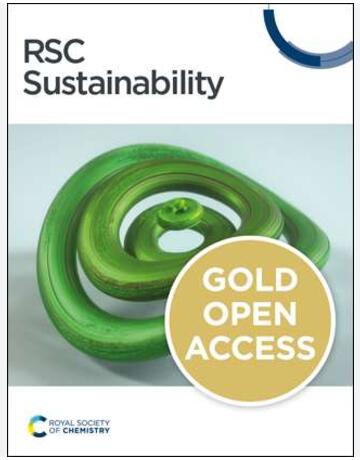增强智能电网的可持续性:使用先进的混合机器学习技术,同时考虑多种影响因素来推算缺失的电力负荷数据
IF 3.3
3区 环境科学与生态学
Q2 ENVIRONMENTAL SCIENCES
引用次数: 0
摘要
随着智能电力系统的加速发展,庞大而复杂的数据集的完整性已成为促进可持续能源管理、确保能源安全和支持绿色生活倡议的关键。本研究介绍了一种新型混合机器学习模型,以解决电力负荷数据缺失这一关键问题--如果不能有效管理这一问题,电网的稳定性和可持续性就会受到影响。通过整合气象和时间特征,该模型结合了随机森林 (RF)、斯皮尔曼加权 k 近邻 (SW-KNN) 和 Levenberg-Marquardt 反向传播 (LM-BP) 技术,提高了数据估算的精度。此外,还采用了方差-协方差加权法来动态调整模型参数,以提高预测准确性。对五项指标的测试表明,考虑各种相关因素可将误差减少约 8-38%,与单一模型方法相比,混合建模方法可将预测误差减少 12-24%。所提出的模型不仅能确保电网运行的弹性,还有助于实现更广泛的能源效率和环境可持续性目标。本文章由计算机程序翻译,如有差异,请以英文原文为准。
Enhancing Smart Grid Sustainability: Using Advanced Hybrid Machine Learning Techniques While Considering Multiple Influencing Factors for Imputing Missing Electric Load Data
Amidst the accelerating growth of intelligent power systems, the integrity of vast and complex datasets has become essential to promoting sustainable energy management, ensuring energy security, and supporting green living initiatives. This study introduces a novel hybrid machine learning model to address the critical issue of missing power load data—a problem that, if not managed effectively, can compromise the stability and sustainability of power grids. By integrating meteorological and temporal characteristics, the model enhances the precision of data imputation by combining random forest (RF), Spearman weighted k-nearest neighbors (SW-KNN), and Levenberg–Marquardt backpropagation (LM-BP) techniques. Additionally, a variance–covariance weighted method is used to dynamically adjust the model’s parameters to improve predictive accuracy. Tests on five metrics demonstrate that considering various correlated factors reduces errors by approximately 8–38%, and the hybrid modeling approach reduces predictive errors by 12–24% compared to single-model approaches. The proposed model not only ensures the resilience of power grid operations but also contributes to the broader goals of energy efficiency and environmental sustainability.
求助全文
通过发布文献求助,成功后即可免费获取论文全文。
去求助
来源期刊

Sustainability
ENVIRONMENTAL SCIENCES-ENVIRONMENTAL SCIENCES
CiteScore
6.80
自引率
20.50%
发文量
14120
审稿时长
17.72 days
期刊介绍:
Sustainability (ISSN 2071-1050) is an international and cross-disciplinary scholarly, open access journal of environmental, cultural, economic and social sustainability of human beings, which provides an advanced forum for studies related to sustainability and sustainable development. It publishes reviews, regular research papers, communications and short notes, and there is no restriction on the length of the papers. Our aim is to encourage scientists to publish their experimental and theoretical research relating to natural sciences, social sciences and humanities in as much detail as possible in order to promote scientific predictions and impact assessments of global change and development. Full experimental and methodical details must be provided so that the results can be reproduced.
 求助内容:
求助内容: 应助结果提醒方式:
应助结果提醒方式:


